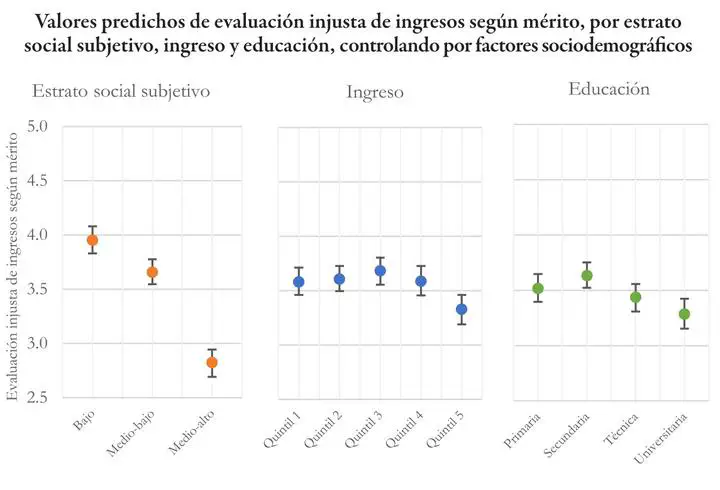Distributive justice and subjective social position: does meritocracy justify income inequality?

Abstract
This paper examines people’s evaluation of distributive justice in Chile. The objective is to explore how individuals’ subjective social position affects their judgment of their own income and whether this judgment rests on a notion of merit. We use data from a vignette-based survey, to get to know the appraisals of a representative sample of people from three urban areas. The results show that an evaluation of unfairness with respect to their income prevails among the respondents, especially among those who identify themselves as belonging to a low or mid-low social stratum. These differences between subjective social positions become even stronger when individuals elaborate their judgment by including a meritocratic criterion based on the effort to educate themselves. However, no significant differences in justice evaluations are observed between objective social positions based on income or education. Our findings highlight the importance of subjective social position in people’s evaluations of distributive justice.